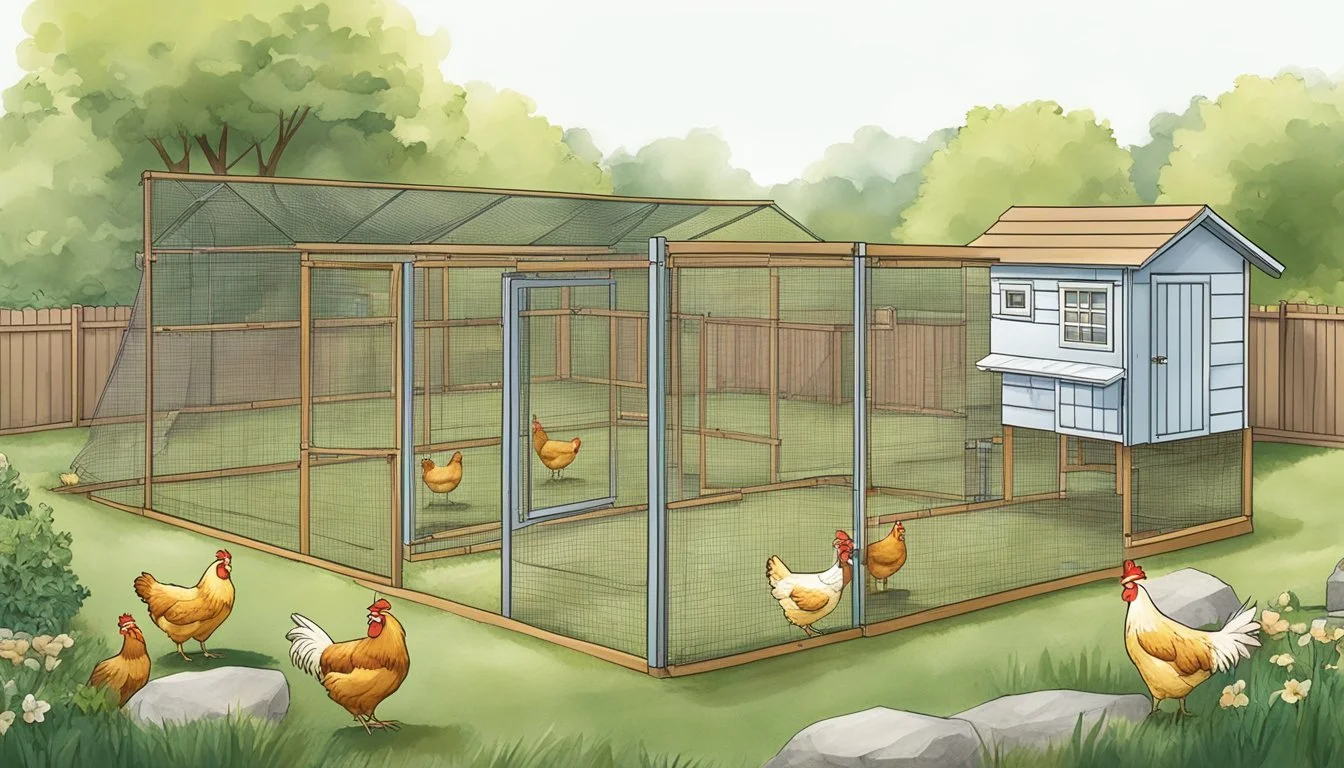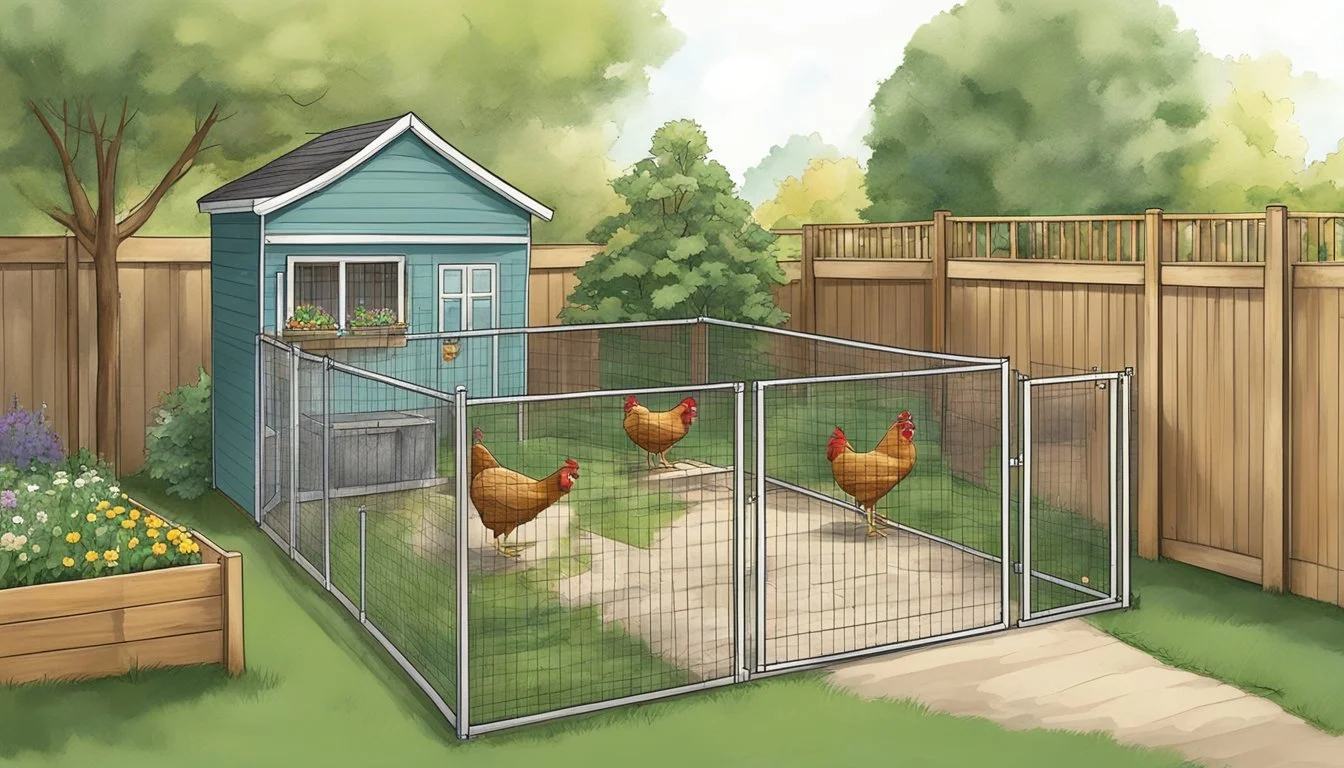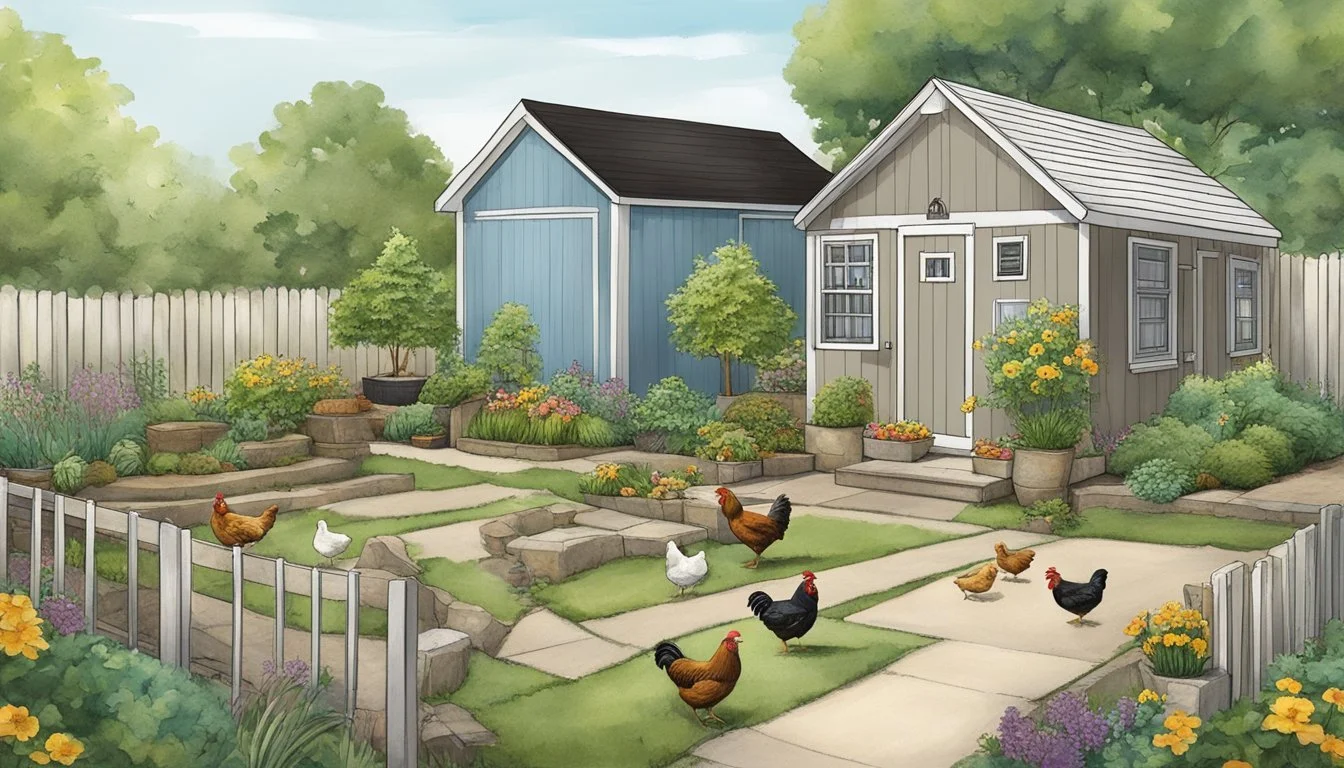Keeping Backyard Chickens in Davenport, IA
Essential Tips for Urban Poultry Farming
Backyard chicken keeping has gained popularity as a sustainable practice, offering benefits like fresh eggs and natural pest control. In Davenport, Iowa, the city has recognized this trend and established specific ordinances to regulate the keeping of chickens within city limits. Residents interested in urban poultry farming must adhere to these rules to ensure harmony in the community and the well-being of the chickens.
The regulations in Davenport allow for a maximum of six chickens per backyard, but roosters are excluded to avoid noise disturbances. This ensures that while individuals can enjoy the advantages of raising hens, the peace and quiet of neighborhood environments are maintained. In addition to the limit on the number of chickens, residents are required to obtain a permit, a process which includes submitting an application and paying any associated fees.
Ensuring appropriate accommodations for backyard chickens is a key factor in Davenport's ordinance. The rules are in place not only to address the potential concerns of neighbors but also to promote humane and healthy living conditions for the birds. As the practice of backyard chicken keeping continues to grow, these regulations may evolve, but for now, they serve as a framework for city dwellers aspiring to partake in this aspect of urban agriculture.
Understanding Local Ordinances
In Davenport, Iowa, the city council has established specific ordinances regulating the keeping of backyard chickens to ensure the well-being of both the chickens and the community.
Overview of Davenport Chicken Ordinance
The City of Davenport's chicken ordinance stipulates that residents may keep a maximum of six chickens in their backyards. However, roosters are excluded from this allowance to prevent noise disturbances. Those interested in keeping chickens must obtain a permit, which requires an application and the payment of associated fees.
Comparing Neighboring Cities' Policies
Iowa generally has permissive chicken ordinances. Comparatively, Rock Island and Moline, Davenport's neighboring cities across state lines, have their own distinct policies regarding backyard chickens. Within Iowa, cities such as Cedar Rapids, Iowa City, Sioux City, and West Des Moines all have their variations of urban chicken ordinances that vary in restrictiveness and requirements.
Recent Changes and Updates
The Davenport City Council has implemented recent updates to the urban chicken ordinance, designed to maintain safe, clean, and minimally disruptive coops in the neighborhood. It is crucial for residents to stay informed about these updates to ensure compliance and avoid potential penalties.
Getting Started with Backyard Chickens
Before keeping backyard chickens in Davenport, IA, residents must navigate local regulations, obtain necessary permits, and select appropriate chicken breeds for their needs and property constraints.
Zoning and Property Requirements
To raise chickens in Davenport, one must adhere to zoning laws which dictate where chicken coops can be placed and how much space is required. Residents are allowed to keep up to six chickens, but roosters are excluded from being kept within city limits to minimize noise disturbances.
Property Space: Adequate space for a coop and a run is necessary.
Coop Location: Must be kept in rear yards and meet setback requirements from property lines.
Permits and Fees for Chicken Keeping
A permit is mandatory for keeping chickens and involves completing an application. The city outlines specific criteria for coop design and maintenance to ensure they are safe, clean, and cause minimal disruption to the neighborhood.
Permit Application: Required to legally keep chickens.
Fees: Payment of relevant fees accompanies the application process.
Choosing the Right Chicken Breed
Selecting a chicken breed that adapts well to backyard living and the Iowa climate is critical. Preference should be for hens, as roosters are not permitted.
Breed Considerations: Temperament, egg-laying capabilities, and hardiness.
Climate Suitability: Initial research should focus on breeds that withstand local weather variations.
Residents must consider these factors carefully to ensure compliance with regulations and to promote the welfare of their backyard chickens.
Chicken Coop Essentials
A coop must be constructed to provide shelter, facilitate easy cleaning, and protect chickens from predators and weather extremes.
Designing a Safe and Comfortable Coop
The design of a chicken coop must prioritize safety and comfort for the poultry. Coops should be well-ventilated to ensure a constant flow of fresh air, preventing respiratory issues. They should also be spacious enough to allow for free movement; a general guideline is to provide at least 3 square feet per chicken inside the coop and 10 square feet per chicken in an outside run. Ample space prevents overcrowding, which can lead to stress and increased aggression among chickens.
Maintaining Cleanliness and Health
To maintain a clean environment, coops should be designed with surfaces that are easy to wipe down and flooring that can be readily cleaned or replaced. Incorporate a regular cleaning schedule that includes removing droppings, refreshing bedding materials, and performing deeper cleans periodically to prevent the spread of diseases and parasites. Good cleanliness practices are crucial for preserving the health of the flock.
Protection from Predators and Extreme Weather
Coops and runs must be secured against predators with sturdy materials like hardware cloth, which is more durable and effective than chicken wire. Locking mechanisms should be used to prevent unwanted access. The structural integrity of the coop must withstand weather conditions such as high winds, heavy rain, or snow. Providing sufficient insulation and a way to control temperature extremes will further safeguard the flock's well-being.
Community Relations and Legal Considerations
When maintaining backyard chickens in Davenport, IA, residents must navigate both the concerns of their neighbors and the city's legal frameworks to foster a harmonious community environment.
Handling Neighborly Concerns
Residents should engage with their neighbors transparently about their intent to raise chickens. They must ensure coops are placed at least 25 feet from neighboring homes and 5 feet from property lines to abide by Davenport's regulations. This strategy demonstrates respect for the community's comfort and upholds neighborly relations.
Understanding Noise and Waste Management
Chickens can be a source of noise, and their waste must be managed effectively to maintain a safe and sanitary environment. Davenport residents should adopt noise mitigation strategies such as positioning coops away from neighbor's windows and actively managing waste by:
Composting chicken waste properly
Ensuring the coop is clean to reduce odor
Residents must abide by local ordinances focused on maintaining a quiet and clean neighborhood to garner community support.
Liability and Legal Proof
In Davenport, keeping backyard chickens requires adherence to city regulations. Residents must obtain a permit and provide documentation, which serves as legal proof that they completed an approved class in raising chickens. They must keep their facilities compliant with the specified location requirements, as non-compliance can result in penalties. For liability concerns, residents should check with their homeowners' insurance to cover any incidents related to their backyard chickens.
Regulations Beyond Chickens
When considering raising animals in Davenport, Iowa, residents must be aware of various ordinances that regulate not only chickens but also other types of poultry and livestock. These reflect the community’s commitment to animal welfare and neighborhood harmony.
Other Poultry and Livestock Ordinances
While Davenport residents may keep up to six chickens, no roosters are permitted within city limits to minimize noise disturbances. When it comes to other poultry types, such as ducks and geese, similar restrictions typically apply, though they are not explicitly detailed within the given information.
As for turkeys and livestock, broader regulations are usually in place to ensure these larger animals are kept in appropriate conditions that suit the residential nature of the city. These ordinances encompass issues such as space requirements, enclosure standards, and potential zoning restrictions. Prospective owners should contact city officials to get precise ordinances pertaining to the type of livestock or poultry they wish to keep.
Slaughter Restrictions and Animal Welfare
The slaughtering of animals within Davenport city limits is subject to restrictions aimed at safeguarding both animal welfare and public health. Regulations ensure the slaughter process is conducted humanely and out of public view to maintain community standards. Explicit details of these restrictions can be obtained from city ordinances or directly from the city council, helping residents comply with local and state laws.
In addition to local laws, state and federal regulations surrounding the humane treatment of animals must be adhered to, which govern not only the conditions in which animals are housed and cared for but also how they are slaughtered should such a situation arise. Residents must take responsibility for staying informed about any changes to ordinances to ensure continuous compliance.
Additional Resources
For residents of Davenport, Iowa, seeking to raise backyard chickens, accessing educational resources and connecting with the community are pivotal steps. These resources can provide vital ongoing support and keep chicken enthusiasts well-informed about the latest regulations and developments within the state.
Educational Opportunities and Community Involvement
Residents interested in backyard chicken keeping can enhance their knowledge and involvement through various educational opportunities. Local workshops or agricultural extension programs often offer classes on chicken care, coop construction, and regulations compliance. These programs aim to ensure that Davenport citizens are well-equipped to maintain a healthy flock and adhere to city and state guidelines.
Iowa State University Extension and Outreach: Offers resources on poultry care and management.
Local Farm Supply Stores: May hold seasonal classes related to poultry.
Engagement with community groups can also be beneficial. City council meetings and community forums are platforms where individuals can discuss concerns, share best practices, and potentially impact future ordinances through a vote.
Community Garden Clubs: A place to connect with fellow chicken enthusiasts.
Online Community Forums: Such as those hosted by backyard poultry websites, provide an avenue for asking questions and staying updated.
Ongoing Support and Information Access
The need for accurate information and support doesn't end after the chickens settle in their new home. Residents should know where to find the latest details on chicken keeping, including any updates to regulations or support materials.
Davenport City Website: Contains the urban chicken permit application and the last updated city ordinances regarding chickens.
State Agricultural Department: Offers resources on state-level poultry regulations.
A well-informed resident can ensure the welfare of their chickens, respect community standards, and enjoy the benefits of fresh eggs. By leveraging educational opportunities and ongoing support, Davenport's backyard chicken keepers can remain compliant and connected to a broader network of like-minded individuals.







